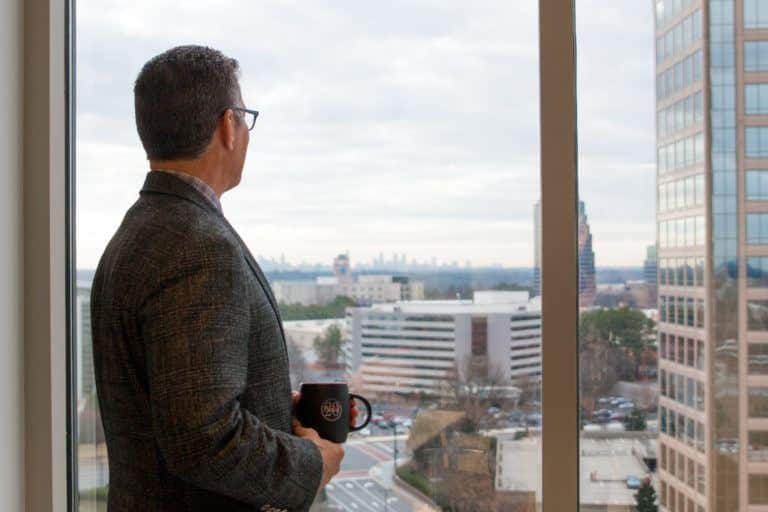Apartment Rents Rise As Demand Stays High

The Atlanta Journal Constitution
By Arielle Kass
April 4, 2014
In December, the asking rent at Brian Meier’s Buckhead apartment jumped by $235.
Faced with the prospect of spending $1,650 a month for the two-bedroom, two-bath apartment, Meier decided to move. At $1,475 a month, his new place two miles away still costs $60 more per month than what he had been paying.
“I expected some increase, but nothing that dramatic,” said Meier, a financial analyst. “I kind of just thought I’d head out.”
Rents in metro Atlanta have been rising since 2010, but recently, the pace has picked up. In the fourth quarter of 2013, rents were 4.51 percent higher than the previous year, according to real estate services firm the CoStar Group. The average asking rent in the region of $876.17 in the fourth quarter topped the pre-recession height.
“We’re pretty much in the peak period right now,” said Jeff Myers, senior real estate economist at CoStar. “It’s a record high right now. … They’re going to push as aggressively as they can as long as they can.”
With little new apartment construction in the past several years, the supply of available units has shrunk. Vacancy rates are lower than normal. Stricter mortgage underwriting to buy a house has kept people in apartments longer. People who have been living at home or with roommates are now looking to live on their own, creating more demand. New construction has led some apartment owners to push rents higher to keep up with their new neighbors, while other complexes have renovated old units to justify higher prices.
When newly built units become available to rent, the pace of increases will likely slow. But until then, apartment owners are in a position to take advantage of a number of factors to push base prices up. Increases have been especially strong the past six months, said Svenja Gudell, director of economic research at Zillow.
This is bad news for renters who see their bills rise, Gudell said, but great for apartment owners. She said it’s another sign that metro Atlanta’s housing recovery is in full swing.
“In the last four months, we’ve seen a noticeable uptick in occupancy and rents,” said Norman Radow, CEO of RADCO Cos., which owns 4,500 apartment units in metro Atlanta. “We’ve raised rents sometimes weekly, and they’re still coming.”
In February, residents at Ashford Jackson Creek in Norcross paid 9 percent more on average when they renewed their leases, Radow said. The 640-unit apartment complex was 97.5 percent occupied last week, and 70 percent of residents chose to renew their lease.
“It’s absolutely astounding,” he said. “This is a robust market.”
High occupancy rates lead to higher rents, Gudell said. But with homes still relatively cheap — they now cost as much to buy as they did in 2002, according to the latest Case-Shiller data — rising rents might encourage some people to buy.
The problem is, low inventory makes it difficult to find a home.
Property owners such as Radow are using the circumstances to renovate their properties, allowing them to charge more. Ashford Jackson Creek is considered a “Class B” apartment — in other words, it’s not as nice as the newly built units with granite countertops and stainless steel appliances. Some of the rent increases can be attributed to companies charging more after making improvements to their Class B and C apartments. Mike Altman, chief investment officer of Cortland Properties, said much of his rent increases are being driven by renovations.
As he renovates, Altman said, rents can rise from between $750 and $1,400 a month, depending on the number of bedrooms, to $900 to $1,600 a month. A surprising number of tenants have stayed in place, he said, as rents have gone up.
“No apartment community down the street is offering one month of free rent today,” he said.
Tiffany Kendall signed a 10-month lease in November to stay in her Austell apartment. If she had signed a 12-month lease, her rent would have risen to $865 a month. By signing a lease that ended earlier, when more people would likely be looking to rent, she knocked nearly $100 off the increase. Even so, her rent went up $50, to $775 a month.
“It was astronomical,” she said. “I was floored. … I’m going to stay here, but I’m not going to stay if they keep raising rents at that high increment.”
Different numbers based on the length of a lease are a result of a complicated algorithm many apartment complexes use to maximize their rents, said Cris Sullivan, executive vice president of Gables Residential. The formula changes rent based on the season, how highly occupied a complex is and what neighbors are charging.
While the cost of living — and renting — in metro Atlanta is typically lower than that of other cities, new apartment buildings in an area drive rents higher. In intown Atlanta alone, there are more than 8,000 Class A apartment units under construction, according to data from Haddow & Co. An additional 8,000 have been proposed. Since 2000, nearly 23,000 Class A apartment units have been built in that same area.
“As the bulk of supply starts to hit, rent growth will subside some,” Sullivan said.
Many renters complained that they felt they were paying more, but not getting anything new for their money. At Gables, Sullivan said, the company is always looking for perks — like pet-walking services or package delivery — that will help justify the higher costs.
Meier, who moved from his apartment after the rent was to rise 16 percent, said he could have handled a 5 percent increase, but didn’t feel like he was getting anything new for his rising costs.
“I just don’t want to feel as if I’m being taken advantage of,” he said.